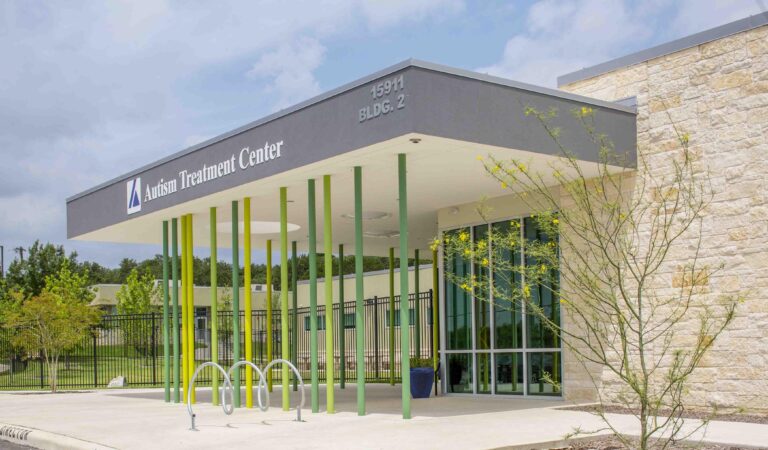San Antonio Leads the Way with Revolutionary Autism Care for Children
San Antonio has introduced a trailblazing autism care program, becoming the first city in the United States to implement such an advanced initiative tailored specifically for children on the autism spectrum. This program combines state-of-the-art technology with customized therapeutic interventions, ensuring that each child receives support that aligns with their individual developmental profile. By blending early intervention methods with sensory integration and interactive digital platforms, the initiative offers a comprehensive framework designed to foster growth in cognitive, social, and emotional domains.
Core components of the program include:
- Customized Therapy Plans: Developed based on each childŌĆÖs unique sensory and cognitive needs.
- Inclusive Family Engagement: Actively involving parents and caregivers to enhance therapeutic outcomes.
- Advanced Technology Integration: Employing virtual reality (VR) and artificial intelligence (AI) to create adaptive learning environments.
- Community-Based Socialization: Promoting peer interaction through group activities and partnerships with local organizations.
| Feature | Advantage | Age Group |
|---|---|---|
| Immersive VR Experiences | Boosts focus and engagement | 3-7 years |
| Caregiver Training Sessions | Equips families with practical skills | All ages |
| Social Skills Workshops | Enhances peer communication | 5-10 years |
Personalized Early Intervention at the Heart of the New Autism Care Model
At the core of San AntonioŌĆÖs innovative program is a commitment to individualized care, utilizing sophisticated diagnostic assessments and ongoing evaluations to tailor therapies that address each childŌĆÖs specific behavioral and developmental challenges. This bespoke approach not only optimizes therapeutic effectiveness but also empowers families by providing them with targeted resources that build on their childŌĆÖs strengths.
Early detection and intervention are emphasized as critical factors in improving long-term outcomes. The program encourages prompt identification of autism spectrum traits, enabling timely initiation of therapies that support cognitive development and social skills. A multidisciplinary teamŌĆöincluding pediatricians, psychologists, and speech-language pathologistsŌĆöworks collaboratively with families to ensure comprehensive care.
- Individualized behavioral strategies
- Consistent progress tracking
- Family-focused coaching and support
| Program Element | Impact |
|---|---|
| Tailored Therapy | Improved engagement and developmental gains |
| Early Screening | Facilitates timely intervention |
| Collaborative Care Team | Ensures holistic support |
Specialists Emphasize Family Empowerment and Sustainable Child Development
Experts in developmental pediatrics and psychology recognize San AntonioŌĆÖs program as a transformative advancement for families affected by autism. By merging personalized therapeutic approaches with active family involvement, the initiative not only addresses immediate developmental challenges but also nurtures long-term improvements in communication, emotional regulation, and social interaction. Families report increased confidence and resilience, highlighting how the programŌĆÖs collaborative framework strengthens the entire household.
Key benefits identified by professionals include:
- Early, individualized intervention tailored to each childŌĆÖs needs
- Enhanced caregiver education to support progress at home
- Functional therapies aimed at improving everyday skills
- Community engagement activities fostering peer relationships
| Focus Area | Long-Term Benefits |
|---|---|
| Communication Skills | Greater verbal and social interaction abilities |
| Behavioral Management | Reduced anxiety and improved coping mechanisms |
| Family Support | Stronger networks and increased resilience |
Strategies to Expand Specialized Autism Services Across the U.S.
Scaling access to specialized autism care nationwide requires a comprehensive strategy. Expanding telehealth capabilities is essential to overcome geographic barriers, particularly for families in rural or underserved regions. Additionally, fostering collaborations between local healthcare providers and national autism research institutions can facilitate the dissemination of best practices and standardized training, ensuring consistent quality of care.
Effective approaches to broaden service availability include:
- Deploying mobile clinics to deliver diagnostic and therapeutic services directly to communities.
- Offering government incentives to attract and retain specialists in high-demand areas.
- Increasing funding for early intervention programs that emphasize culturally sensitive, evidence-based treatments.
| Approach | Benefit | Potential Obstacles |
|---|---|---|
| Telehealth Expansion | Improves specialist access remotely | Technology access disparities |
| Mobile Clinics | Provides on-site evaluation and care | Operational and financial challenges |
| Incentive Programs | Draws professionals to underserved locations | Ensuring long-term funding |
Conclusion: San AntonioŌĆÖs Innovative Autism Care Sets a National Example
By launching the nationŌĆÖs first comprehensive autism care program that integrates personalized therapies with advanced technology and family involvement, San Antonio is charting a new course in supporting children with autism. Early feedback indicates promising developmental improvements, inspiring hope among families and professionals alike. As this pioneering model evolves, it holds the potential to influence autism care practices across the country, expanding opportunities and enhancing outcomes for countless children and their families.




